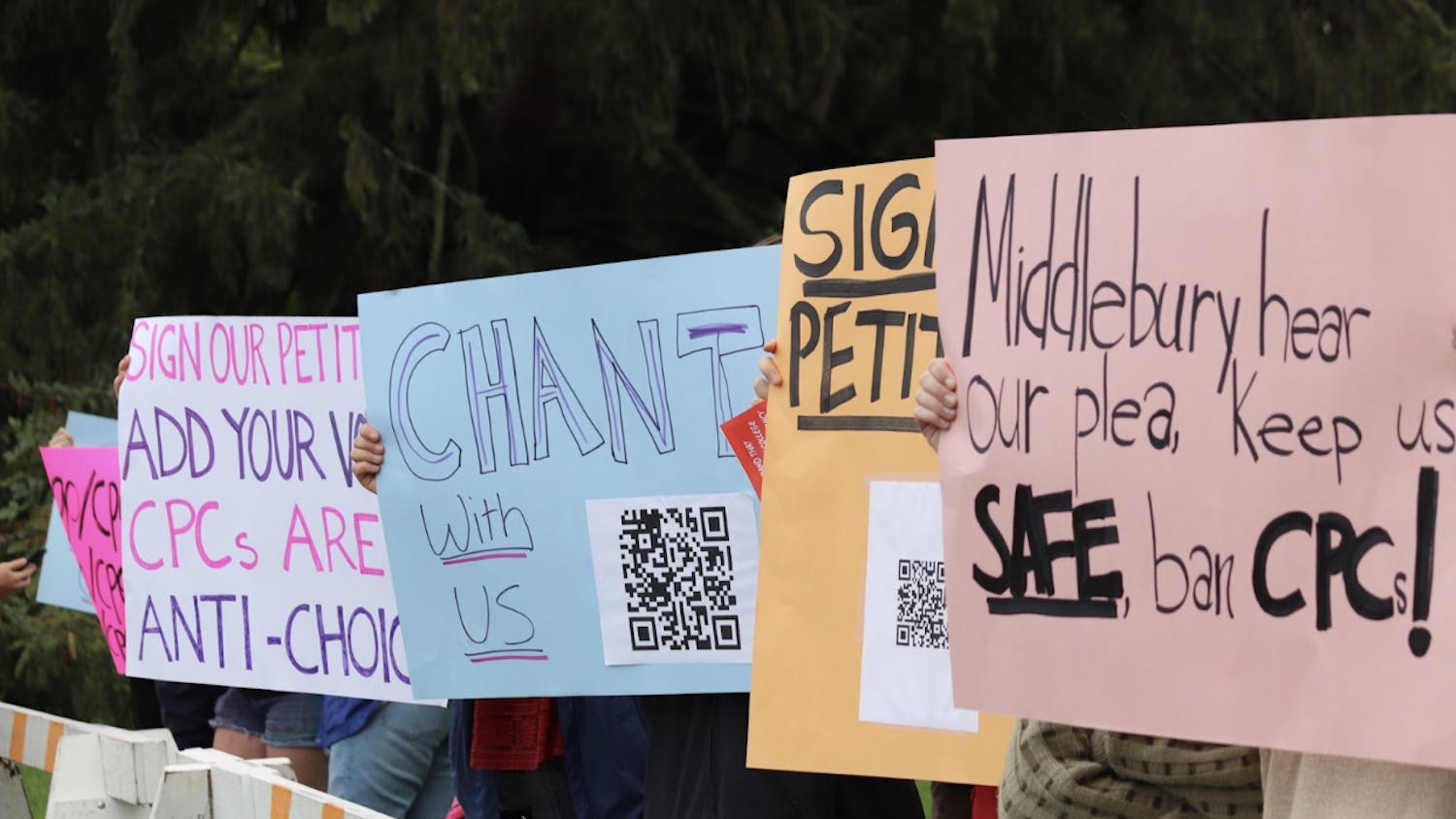Content Warning: This article contains mentions of suicide.
It has been almost a year since we lost a student to suicide. It has been almost a year since I was paralyzed by tremendous fear, anger and sadness. I’m not sure there are words that could effectively describe how I felt, feel or will feel.
In the weeks and months following Oct. 20 last year, I remembered the immense amount of support, love and care that poured in from every direction around me. In the aftermath of the hardest time of my life, I saw Middlebury’s ability to come together as a community.
But a year later, the college administration has moved on with little to no change of the existing mental health infrastructure that has repeatedly failed its students. There is still a dearth of counselors of color and no on-campus psychiatrist, even after repeated student requests.
There are currently seven counselors and four counselors in training. None of them is a counselor of color, according to their biographies on the website which is still awaiting updates. As the school recruits increasingly diverse classes, the mental health resources for students of color fail to keep up. The center needs more staff and resources to serve the community’s changing demographics, allowing students to request counselors who share their racial identities. The Middlebury administration needs to realize the needs of students of color, among other students who hold identities that have historically been excluded from higher education. It should not expect the limited existing resources that students of color utilize such as the Anderson Freeman Resource Center (AFC) to provide consistent and reliable emotional support. The AFC is a safe space, but it is not meant to be a crisis hotline.
Furthermore, since Alberto Soto, former director of counseling, left Middlebury in August, there is currently no director. According to Barbara McCall, executive director of Center for Health and Wellness, the new director starts on Nov. 28. The high turnover rate of counselors at the college and the current lack of leadership are extremely concerning.
Of course, counseling services are not the only support system for students. But the new class dean system is failing as well. The junior and senior classes, meaning at least half of the college, have one class dean. If college deans are designed to be “a source for support and guidance for all students as they navigate their Middlebury experience,” then how can Scott Barnicle possibly provide such support for around 1400 students, even with his best intentions? Even for the first year and sophomore classes, having one class dean for 800 students is still far from enough. During my time at Middlebury, I witnessed how the dean system was restructured after it decoupled from the commons system. The number of deans has gone from five to three while the number of students has increased. It is simply unrealistic to expect that the dean system can provide timely solutions because deans are overworked and stretched too thin.
Middlebury administration needs to face the inadequacies of mental health support resources on campus and improve them immediately. It may be difficult to hire counselors or psychiatrists as the nation deals with a shortage of campus counselors, but mental health services must be secured through whatever means necessary.
How can students be expected to shoulder the burden of lifting each other up, when the college simply brushes over tragedies with vigils, memorial services and nothing else? How can professors’ goodwill be the only option for processing space, when the college simply does not value providing robust mental health help?
The indifference from the college and its lack of action exacerbate the toxic busyness culture on campus that prioritizes academic and athletic success over emotional well-being. The students of Middlebury are compassionate and empathetic, especially in times of extraordinary hardship — yet the same cannot be said for the institution that remains actionless.
For Middlebury to move towards a culture that fights against isolation, it must first acknowledge that the current mental health resources are simply not enough. If the college prides itself on the wide variety of wellness and health resources it offers students during admissions information sessions, it must also follow through on their promises when students actually commit to Middlebury.
Middlebury, it has been almost a year, but substantive change is nowhere to be found.
There is no return to business as normal. It should not be a battle just to stay afloat on campus, and no one should suffer because the college fails to act.
It has been almost a year since I lost you. I miss you.
If you are thinking about suicide, please call the National Suicide Prevention Lifeline at 800-273-TALK (8255).
Correction 10/18/2022: A previous version of this article incorrectly stated that there are five counselors and four counselors in training. It has been corrected to actually be seven counselors and four masters' level interns. This information was inconsistent with the website of the center and was provided to The Campus after press time because a new staff member started working on Monday, 10/17.
Correction 10/18/2022: A previous version of this article stated that the former director of counseling left Middlebury last year. To be more precise, Soto left in August.

Rain Ji '23 is a managing editor of The Campus. She previously served as an Arts & Culture editor.
She is majoring in International and Global Studies with a concentration in the Middle East and North Africa. Previously, she studied abroad in Amman at the University of Jordan. Outside of academics, she enjoys watching Criminal Minds and skiing.



